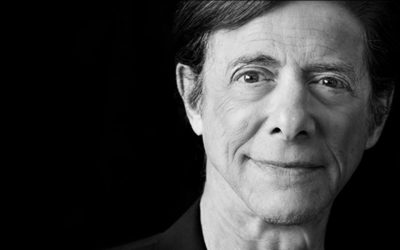After being abused by Moslems in Somalia, Ayaan Hirsi Ali moved to the Netherlands. She became an outspoken critic of Islam and wrote a screenplay for Submission, a 2004 movie that specifically critiques Moslem treatment of women. The picture’s director, Theo van Gogh, was murdered by an Islamic fundamentalist. A note found on his corpse threatened to assassinate Ayaan Hirsi Ali, who’d become a member of Dutch Parliament.
Ali, who denounced Islam following the 9/11 attack on the United States, wrote about her internal struggle with her Islamic faith in Infidel, a 2007 New York Times bestseller reprinted with a foreword by the late Christopher Hitchens, which, according to a Publishers Weekly review, “delivers a powerful feminist critique of Islam informed by a genuine understanding of the religion.”
Ali was recently named as recipient of an honorary degree by Brandeis University, which invited her to speak to students during commencement—and promptly withdrew the honor and invitation after a fundamentalist Islamic group raised objections and coordinated a campaign against the infidel, a term which is Latin for without faith.
Upon the controversial Brandeis decision, few spoke up in defense of Ayaan Hirsi Ali—and, I noticed, almost no one from Brandeis University came to the infidel’s defense.
As a longtime intellectual who never attended college, I have nevertheless become aware that college professors do not typically speak out against colleges that placate political correctness or submit to smear campaigns, let alone speak up against a college for whom they are employed.
But I recently discovered—and talked with—one who did.
His name is Thomas Doherty, a film scholar at Brandeis University in Waltham, Massachusetts. Doherty, cultural historian with special interest in Hollywood cinema, is chair of the American Studies program at Brandeis, an associate editor for the film magazine Cineaste and film review editor for the Journal of American History. His books include Hollywood’s Censor: Joseph I. Breen and the Production Code Administration (Columbia University Press, 2007) and Hollywood and Hitler, 1933-1939 (Columbia University Press, 2013).
Following the Brandeis-Ali affair, Doherty gave a short interview to the press in which he said he refused to sign the letter and added that he thinks Ali is a “courageous freedom fighter”. We spoke briefly before the interview, confirmed the interview in e-mail correspondence and talked at length about the author Ali, the university and the risk of speaking out for reason. This is an edited transcript.
Scott Holleran: Why have you chosen to defy the university by speaking out for a known infidel—an atheist against Islamic fundamentalism—who has been targeted by terrorists, singled out by your employer for denunciation and cast out?
Thomas Doherty: This wasn’t a difficult call. 86 faculty members of about 350 faculty members at Brandeis signed the letter [denouncing Ali and demanding her removal from the list of honored recipients]. I got a call from Associated Press and they asked what I thought. I said that she’s a courageous feminist who is putting her life at risk to defend women’s rights. I didn’t know her work well. I knew her mostly from her film Submission. I thought she was a great choice for receiving an honorary degree from Brandeis, which typically names white males. When I first heard about the letter, I thought it was bizarre that there was controversy. When I read the letter, I was shocked. It’s pretty depressing.
Scott Holleran: What is the most common response if any to your comments supporting Ayaan Hirsi Ali from the Brandeis administration?
Thomas Doherty: I’ve heard nothing from the administration. When you’re tenured, it doesn’t matter. What can they do—give me a smaller raise?
Scott Holleran: What is the most common response if any from fellow faculty members?
Thomas Doherty: I got a very gracious letter from Bernadette Brooten who wrote the [denunciation] letter. I’ve received support and agreement from a couple of my colleagues but that’s here in the American Studies department—so we study America and we might be considered an outlier.
Scott Holleran: What is the most common response if any from students?
Thomas Doherty: I haven’t talked to students yet. I must have gotten 40 or 50 letters in support saying ‘what happened to the university I graduated from?’ Those are mostly from lawyers and professors, alumnus of Brandeis. Frankly, I’d never raise something like this in class.
Scott Holleran: When you first became aware of the campaign against Ali, did you think the campaign would fail or succeed?
Thomas Doherty: First, I was stunned. They announced the honorary degree and then my wife told me Megyn Kelly was talking about the university’s decision on Fox News. I had heard that the women’s studies professors were upset with choice of Ayaan Hirsi Ali. That didn’t sound right to me. Then, I read the letter. I didn’t think their campaign would succeed—I thought it would fail. I was surprised how quickly Brandeis University collapsed.
Scott Holleran: Have you seen Submission?
Thomas Doherty: Yes. I just checked out her new film Honor Diaries. It’s sort of an arty protest against Islam. It has pictures of women in a chador with projections of the Koran over it. It’s your basic art protest against an ideology which happens all the time in film. There are protests against patriarchy, Mormonism, Catholicism. I didn’t think of her [2004] film Submission as especially formidable or controversial. It really came to my knowledge when the movie’s director, Theo van Gogh, was assassinated [by an Islamic fundamentalist]. I thought at the time that people in the arts should have been more aware of that. So I was surprised that the Oscars in 2005 did not honor [Van Gogh]. The guy was literally killed for making a film. I got in touch with a friend at the [trade publication] Hollywood Reporter who confirmed that Van Gogh was not mentioned during the [Academy Awards] ceremony. There wasn’t any kind of homage. I thought then that if there had been a gay filmmaker who made a film against Christianity and had been assassinated by a Christian fundamentalist, there would have been an homage.
Scott Holleran: Have you read Infidel?
Thomas Doherty: No. I have read sections of it. I’m not an expert on this woman. I’ve never met her. I’ve had no contact with her. I’m mostly a film guy, so she came to my consciousness through film. What I know about her is that she was mutilated under [Islamic] law and severely abused and when she told her story in film, someone murdered the director and put a death sentence on her. When someone’s been trying to kill you for 10 years and you speak out against them, it’s not insane.
Scott Holleran: Is it possible that the university became aware of the campaign against Ayaan Hirsi Ali and decided that it was unable to protect and defend the students and faculty against the threat of initiation of force by Islamic jihadists?
Thomas Doherty: I have no idea how the decision was made.
Scott Holleran: Do you agree with Brandeis alum Jeffrey Herf, author of Nazi Propaganda for the Arab World (Yale University Press, 2009) and The Jewish Enemy: Nazi Propaganda during World War II and the Holocaust (Harvard University Press, 2006), who wrote to Brandeis President Fred Lawrence that the university’s decision is “an act of cowardice and appeasement”?
Thomas Doherty: Yes.
Scott Holleran: Do you agree with Mr. Herf that “… the Nazi interpretation of Christianity as well as the core texts of the Christian tradition itself, were used by the Nazis to justify their mass murders”?
Thomas Doherty: The Nazis would use anything to justify their mass murders. If you look at the Nazi propaganda, they were propagandizing against the pope too. Look at the cartoons—they did it because Hitler wanted no gods before him, so there’s a lot of anti-Catholicism.
Scott Holleran: Your work centrally addresses the conflict between the individual and the state in your books Hollywood and Hitler and Hollywood’s Censor. Do you see your opposition to the university’s withdrawal of the honorary degree as part of a career theme exploring submission to slavery?
Thomas Doherty: No. This is an easy call. If you believe in freedom of expression then you support people who believe that as well. I oppose the totalitarian mindset. She’s put her life on the line since 2004—we are talking about someone who has literally put her life on the line. The notion that 13 members of the faculty in women’s studies would oppose this woman is mind-boggling. I have no idea why.
Scott Holleran: Both feminists and multiculturalists claim that all people and cultures are equal in every sense, so they accept the egalitarian ideal that all cultures and religions, for example, are equal in every way—if religion means female genital mutilation, so be it—and one must never judge—
Thomas Doherty: —That’s what they put forward but there’s obviously a judgment here in the end against Ayaan Hirsi Ali. I believe in feminism but you have a Third World Somali woman so how much more multicultural can you get? This woman’s being shut down. If someone like Ayaan Hirsi Ali isn’t under the umbrella of feminism, who is?
Scott Holleran: What is your estimate of her new movie, Honor Diaries?
Thomas Doherty: I like it. She’s interviewed in it and she executive produced the film. It’s about nine Moslem women fighting to improve conditions in predominantly Moslem countries ruled by Sharia law, with female genital mutilation, and other than Ayaan Hirsi Ali, most of the women self-identify as Moslem so the theological criticism is from within the orb of Islam. [Islamic advocacy group Council for American-Islamic Relations, which drove the campaign to pressure Brandeis University to withdraw Ali’s honorary degree] wants to shut the film down, too.
Scott Holleran: The Brandeis statement said that “[t]he selection of Ms. Hirsi Ali further suggests to the public that violence toward girls and women is particular to Islam or the Two-Thirds World, thereby obscuring such violence in our midst among non-Muslims, including on our own campus. We cannot accept Ms. Hirsi Ali’s triumphalist narrative of western civilization, rooted in a core belief of the cultural backwardness of non-western peoples.” But the Brandeis University motto is: “Truth, even unto its innermost parts.” Is the Brandeis motto a fraud?
Thomas Doherty: In this case it certainly is. If you look back to the 1950s, Brandeis was founded not just as a celebration of the Jewish experience but also from the very beginning we welcomed the liberal leftist college professors—we got Herbert Marcuse—so to see this particular arc come around is particularly distressing given the Brandeis tradition.
Scott Holleran: Do you think your own life may be at risk for speaking out for the infidel?
Thomas Doherty: I hope not. [Pauses] No, I don’t think so. I’ve received no death threats. Brandeis is a great place. [Pauses] There’s an expression in Yiddish shanda which means you’ve disgraced us and reflected poorly on Jews—shanda. This is a big shanda.




